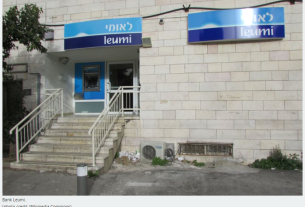New York City-based Metropolitan Commercial Bank will exit the crypto world, it said Monday, following a year in which the sector saw volatility in token prices and the downfall of several prominent exchanges.
Metropolitan served as a banking partner for now-bankrupt crypto exchange Voyager Digital, and faced a spotlight in July, when it clarified to Voyager customer that their accounts were eligible for Federal Deposit Insurance Corp. (FDIC) insurance only if the bank, not Voyager, were to fail.
In its statement Monday, Metropolitan acknowledged “recent developments in the crypto-asset industry, material changes in the regulatory environment regarding banks’ involvement in crypto-asset related businesses, and a strategic assessment of the business case for MCB’s further involvement” as reasons for the exit.
CEO Mark DeFazio, however, said the bank’s exit process began in 2017, when it decided to pivot away from and not grow its crypto business.
“Crypto-related clients, assets and deposits have never represented a material portion of the Company’s business,” he said, “and have never exposed the Company to material financial risks.”
Metropolitan has four active institutional crypto-asset clients and, in aggregate, they account for 6% of the bank’s total deposits and 1.5% of total revenues.
The Washington Post reported in November that Metropolitan had $1.5 billion in digital-asset deposits at the end of 2021, equivalent to one-quarter of total deposits. By the end of September, digital-asset deposits had halved, in part in connection with Voyager’s bankruptcy filing.
Metropolitan on Monday said it does not have outstanding loans to its four crypto-asset clients and does not hold crypto assets on its balance sheet.
The bank said it plans to close out these relationships “in an orderly fashion” this year.
Metropolitan did not return a request for comment by press time.
Before 2019, Metropolitan was “one of the only games in town” as one of few traditional banks aligned with the crypto sector, according to CoinDesk. Digital-asset deposits at the bank declined by 52% over the course of that year, in what CoinDesk dubbed “a sign” that competition among traditional banks in the crypto space was “heating up.”
Last year, however, brought the spectacular collapse of crypto exchange FTX, which sent a ripple effect of financial challenges through the crypto sector, and growing interest from regulators’ and lawmakers regarding banks that dabble in crypto.



